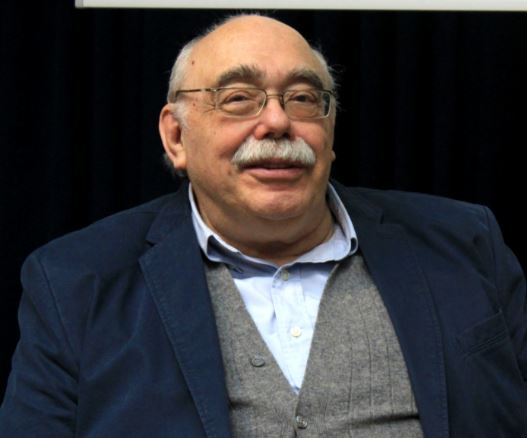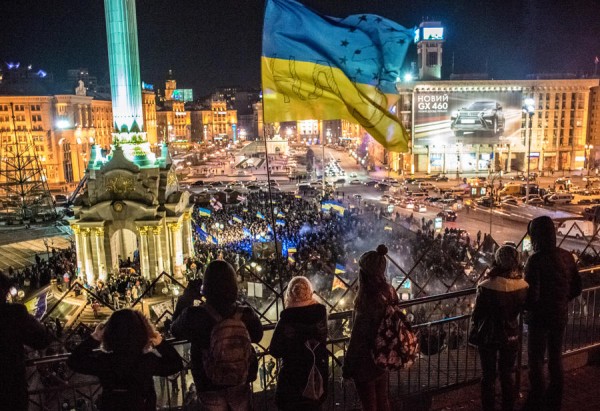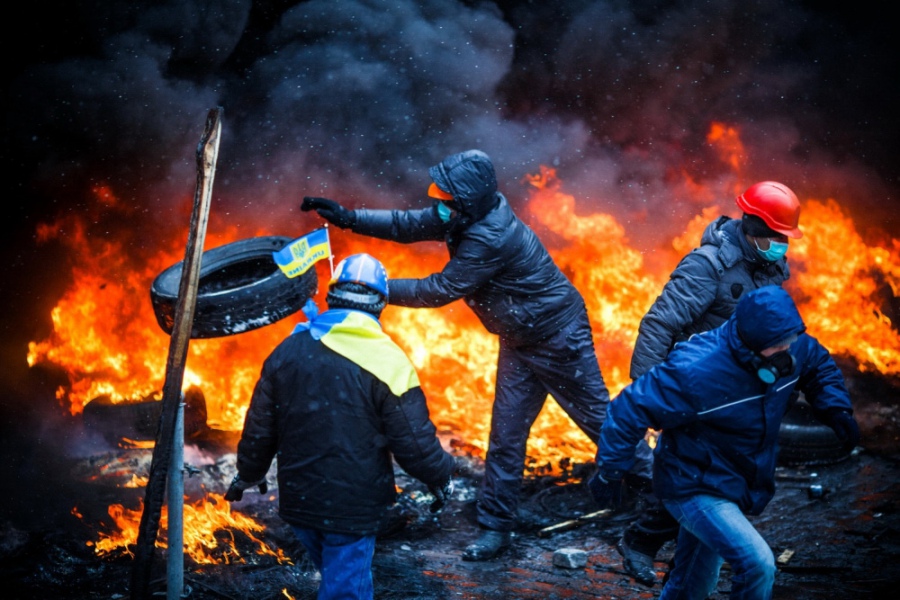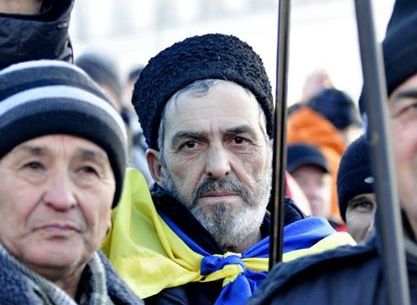What are Ukraine's chances to become a successful country?

In his column for the magazine Novoye Vremia, President of the Ukrainian Center for Economic Development Oleksandr Paskhaver identifies three factors helping Ukraine move forward on its chosen path of development. They are the dissolution of the Russian empire, being conducted by its own leadership, giving Ukraine a chance to move away from the "Russian world." Then, there is the postindustrial revolution, which brings about technological and social changes making the existing Ukrainian property ownership model - oligarchic capitalism - obsolete. Finally, there is the Euromaidan revolution as the start of an anticolonial social revolution, as an ongoing movement that is helping Ukraine to advance and to transform itself:
“Sociologists have noted that people on Euromaidan behaved in accordance with values that are different from the values of the passive majority. But they comprise a minority – which is typical for revolutions.
This is a major difference between what happened currently and what happened at the beginning of the 1990s when we set out to build capitalism after the collapse of the USSR and after the failure of the Soviet economic system. There was no revolution when we created our homegrown version of capitalism – there were no ‘revolutionary bourgeois.’ And building an effective society was not the goal of those who were involved in building capitalism in Ukraine.”
Also, Paskhaver identified three elements that are blocking the progress of Ukrainian integration into Europe:
1. The survival strategy
The majority of the people champion the values that are embodied in the simplest of strategies: the strategy of survival. The survival strategy has been a necessary and integral part of Ukrainian life for hundreds of years; it was practiced by Ukrainians in foreign states and in states that were hostile to Ukraine. This is what saved Ukrainians in what, for Ukraine, was a bloody twentieth century. Briefly, the survival strategy can be condensed to the following:
- Do not trust anyone except “one of your on.” The state, especially, cannot be trusted.
- If possible, act stealthily. If that is impossible, employ deception in dealing with those around you. If deception does not work, use bribery.
2. Capitalism Ukrainian style
Capitalism Ukrainian style is the survival strategy which helped build Ukraine's existing oligarchic capitalism. Under the chaotic conditions of the early 90’s – the consequence of the survival strategy – a grandiose, impressive shadow economy was built that saved both the country and society.
The only people who ended up building homegrown capitalism in those conditions were the Soviet bureaucrats and the opportunist speculators who flocked to partake in the gobbling up of the abundant pickings.
Paskhaver stresses that oligarchic capitalism is not comprised of the ten richest people, it is comprised of hundreds of thousands of the richest. Many of them did not gain anything, but those who profited handsomely have built their private little monopolies everywhere, enterprises that included factories, hospitals, and cemeteries. The goal was to establish a monopoly that would provide corrupt rent payments.
The professional bureaucrats of the last 26 years have been replaced with crony acquaintances of the oligarchic system. The quality of the bureaucracy has deteriorated sharply even in comparison with the Soviet bureaucracy. And the national economy has become a hierarchical conglomerate of the monopoly. Where there is a monopoly there is no growth. The monopoly is an obstacle to growth and development and a source of poverty. Therefore, Ukraine does not advance and does not grow rich.
And finally, perhaps the worst thing is that all the rules, be they formal or informal, have been slanted to favor the corrupt system. Ukraine is encompassed in a newfound social fabric; and all its inhabitants are interwoven in it, willingly or unwillingly, because there is no other way their rights can be protected. This social fabric is highly adaptive and therefore long-lasting. A hero who would want to break the system would most likely fail. Only slow, steady displacement can succeed in breaking the system.
3. The immaturity of the revolutionary class that appeared during the Euromaidan revolution
The revolutionary group of people that emerged in the course of the Euromaidan has not yet fully matured. They have not succeeded in creating an attractive ideology for the public; in forming political structures; in installing a group of leaders. As events progressed, power was handed over to people who even though they are the most liberal, the most forward-looking, they are, nevertheless, representatives of the old electorate. And in spite of their best intentions, their actions become entrapped within the old customs of doing things and the same old connections and management techniques.
Thus Ukraine ended up with a "sandwich" model of reform management: the meat of the sandwich is the power structure, including the representatives of the old electorate; the top slice is comprised of the donors and their pressure; the bottom slice is the millions of new people with new attitudes and new expectations who are likewise applying pressure on the government.
There is yet another important factor: the intensification of tensions. The more the pressure to reform is applied, the more complex the conflict becomes. Ukraine is witnessing a sharp escalation in the conflict, which according to Paskhaver means reforms are starting to have an impact:
"Naturally, if we compare ourselves with the best achievements the developed countries have attained our meager successes are laughable, but if we compare ourselves with the lowermost bottom from which we are now rising, then, I believe, our limited successes are outstanding. It all depends on what point of reference you consider."
Oleksandr Paskhaver’s comments on what Ukraine can expect in the future:
- Even if the impact of the new institutions grows sporadically, they will eventually start working as a system and their influence will become effective. The positive trend will be evident in the near future.
- Work within the revolutionary class is continuing, and there is a chance that a viable political project will be created. The current leaders of Ukraine should support this process and be prepared to hand power over not to their current political surrogates, but to a well-seasoned revolutionary class.
- The conflict will continue to escalate. That is an indication that we are moving forward.
- We can expect a slow but steady increase in the influence of European values as opposed to the value of the survival strategy. We will become a European country (after a generation) but we will be a poor European country for a long time. May God help us become a poor European country.




